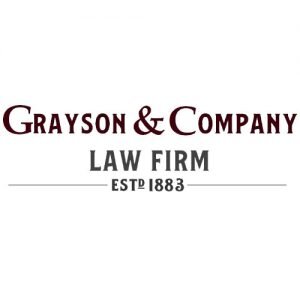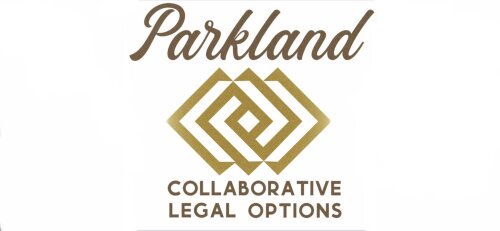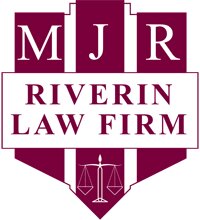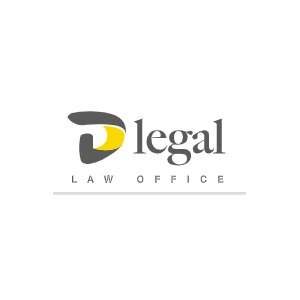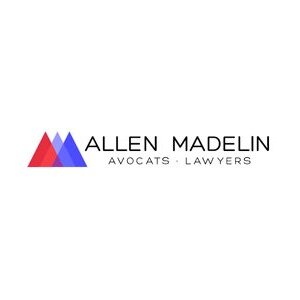Best Funds & Asset Management Lawyers in Canada
Share your needs with us, get contacted by law firms.
Free. Takes 2 min.
Or refine your search by selecting a city:
List of the best lawyers in Canada
About Funds & Asset Management Law in Canada
Funds and asset management is a key sector within Canada’s financial industry, involving the professional management of various investment funds, portfolios, and assets on behalf of individuals, businesses, and institutional investors. This field includes mutual funds, hedge funds, pension funds, and other collective investment vehicles. Canadian laws govern the creation, administration, and distribution of these funds, safeguarding investor interests while promoting transparency and fair dealing. The regulatory environment is shaped by both federal and provincial authorities, leading to a robust and well-structured industry that ensures the protection of investors and upholds market integrity.
Why You May Need a Lawyer
There are many reasons individuals or entities might require legal advice in the area of funds and asset management in Canada. Common situations include:
- Establishing a new investment fund or asset management business
- Navigating compliance requirements related to securities regulations
- Drafting or reviewing fund offering documents and management agreements
- Understanding investor rights and obligations
- Dealing with disputes between fund managers and investors
- Assisting with regulatory reporting or responding to inquiries from regulatory bodies
- Advising on mergers, acquisitions, or restructuring of funds and asset managers
- Addressing tax considerations related to funds and investment structures
- Protecting against potential fraud or mismanagement of assets
- Ensuring appropriate disclosure and marketing practices for investment products
In each scenario, legal expertise helps clients navigate the complex landscape of rules and regulations, protecting their interests and promoting business success.
Local Laws Overview
The regulation of funds and asset management in Canada is primarily overseen by provincial and territorial securities regulators, with some federal involvement. Critical aspects include:
- Securities Legislation: Each province and territory administers its own securities laws, often harmonized through national instruments and policies under the Canadian Securities Administrators (CSA).
- Registration Requirements: Fund managers, portfolio managers, and dealers must register with the appropriate securities commission and comply with ongoing obligations such as reporting, compliance systems, know-your-client (KYC), and suitability requirements.
- Disclosure Rules: Offering documents must provide clear, accurate information about the fund, its risks, fees, and investment strategies.
- Fund Governance: Laws and guidelines set out standards for fund governance, independent review committees, and conflict-of-interest management.
- Anti-Money Laundering: Both federal and provincial rules require asset managers to implement measures to detect and prevent money laundering and terrorist financing.
- Investor Protection: Regulatory frameworks are designed to safeguard investors through complaint handling, dispute resolution, and compensation mechanisms.
Staying compliant with these and other evolving regulations is critical for anyone involved in funds or asset management in Canada.
Frequently Asked Questions
What is asset management in the context of Canadian law?
Asset management involves the professional management of investments on behalf of clients, following specific regulatory and fiduciary rules to safeguard assets and optimize returns.
What types of investment funds exist in Canada?
Common types include mutual funds, exchange-traded funds (ETFs), hedge funds, pooled funds, pension funds, and private equity funds, each subject to distinct regulatory frameworks.
Who regulates funds and asset managers in Canada?
Securities commissions at the provincial and territorial level are the primary regulators, coordinated through the Canadian Securities Administrators (CSA). Federal agencies may also play a role, particularly related to anti-money laundering.
Do I need to register as a fund manager in Canada?
Yes, most fund managers and portfolio managers must be registered with the appropriate securities commissions before managing assets or dealing with the public.
What are the main compliance obligations for asset managers?
Key obligations include ongoing registration, client disclosure, conflict-of-interest management, anti-money laundering compliance, and regular reporting to regulatory authorities.
How can investors ensure their money is protected?
Investors should verify a fund manager’s registration status, review offering documents, and understand the compensation mechanisms and dispute resolution options available through regulatory bodies.
What are the risks of not complying with Canadian fund regulations?
Non-compliance can lead to regulatory sanctions, fines, loss of registration, civil lawsuits, or even criminal prosecution.
Are foreign asset managers allowed to operate in Canada?
Yes, but they must meet specific regulatory requirements, including investor protection measures and adherence to local registration rules.
How are fund fees and expenses regulated?
Fees and expenses must be clearly disclosed to investors and must comply with the standards set by securities regulations to ensure fairness and transparency.
Where can I find information about licensed funds and managers in Canada?
Securities commission websites and the Canadian Securities Administrators provide databases and tools for checking the registration status and disciplinary history of funds and managers.
Additional Resources
For more information and guidance on funds and asset management in Canada, consider these helpful resources:
- Canadian Securities Administrators (CSA): Provides harmonized regulatory notices, policies, and registration search tools.
- Ontario Securities Commission (OSC): Governs securities activities in Ontario, with guides, investor protection resources, and enforcement updates.
- Autorité des marchés financiers (AMF): Oversees Quebec’s financial markets with similar tools and information.
- Investment Industry Regulatory Organization of Canada (IIROC): Regulates investment dealers and trading activity across Canada.
- Mutual Fund Dealers Association of Canada (MFDA): Regulates mutual fund dealers.
- Financial Consumer Agency of Canada (FCAC): Offers consumer protection information and educational resources.
- Canada Revenue Agency (CRA): Info on tax treatment of investments and funds.
Next Steps
If you need legal advice or assistance with funds and asset management issues in Canada, consider the following steps:
- Assess your needs: Determine if you are starting a new fund, resolving a dispute, addressing compliance, or have other legal questions.
- Gather relevant documents: Collect offering documents, contracts, correspondence, and any regulatory notices.
- Contact a specialized lawyer: Seek out a lawyer or law firm with expertise in Canadian funds and asset management law. They can provide guidance on your rights, obligations, and next steps.
- Check for registration: Always verify the credentials and regulatory status of any fund manager or advisor you are considering working with.
- Stay informed: Keep up to date with regulatory changes by subscribing to updates from securities regulators and reputable financial news sources.
Navigating the funds and asset management landscape can be complex, but with the right guidance and resources, you can make informed decisions to protect your interests and achieve your investment goals.
Lawzana helps you find the best lawyers and law firms in Canada through a curated and pre-screened list of qualified legal professionals. Our platform offers rankings and detailed profiles of attorneys and law firms, allowing you to compare based on practice areas, including Funds & Asset Management, experience, and client feedback.
Each profile includes a description of the firm's areas of practice, client reviews, team members and partners, year of establishment, spoken languages, office locations, contact information, social media presence, and any published articles or resources. Most firms on our platform speak English and are experienced in both local and international legal matters.
Get a quote from top-rated law firms in Canada — quickly, securely, and without unnecessary hassle.
Disclaimer:
The information provided on this page is for general informational purposes only and does not constitute legal advice. While we strive to ensure the accuracy and relevance of the content, legal information may change over time, and interpretations of the law can vary. You should always consult with a qualified legal professional for advice specific to your situation.
We disclaim all liability for actions taken or not taken based on the content of this page. If you believe any information is incorrect or outdated, please contact us, and we will review and update it where appropriate.
Browse funds & asset management law firms by city in Canada
Refine your search by selecting a city.



